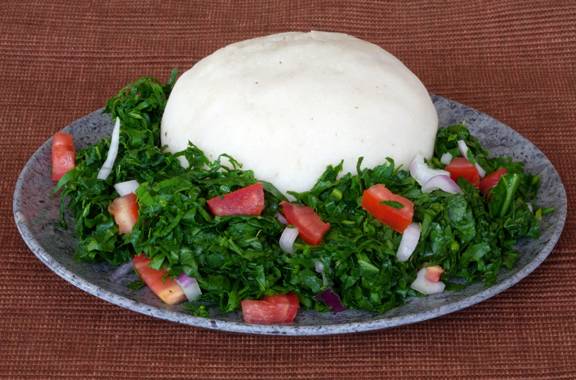Your favorite tomato salad, fruit pudding, potatoes, or sukumawiki stew might come with a hidden health risk.
A recent report revealed the presence of toxic pesticide residues in the very ingredients that make up the meals.

Farmers and open-source water users, find themselves in the direct line of exposure to these toxic pesticides.
These harmful chemicals are imported into Kenya from two major sources, China and Europe, which are among the world’s largest exporters of farm chemicals.
The Heinrich Boll Foundation, an advocate for environmental protection and food security, exposed the disturbing reality.

Unknowingly, Kenyan consumers are ingesting vegetables contaminated with pesticides.
Shockingly, these residues were banned in Europe back in 2007 but continue to be sold to farmers in Kenya.

The report, “Toxic Business: Highly Hazardous Pesticides (HHPs) in Kenya,” shines a light on the alarming fact.
Unfortunately, more than half of the 310 pesticides investigated contain harmful substances.
Carbosulfan, known to inflict severe damage on critical human organs.
According to the World Health Organization (WHO), exposure to carbosulfan can lead to devastating consequences such as liver and kidney failure.
Furthermore, it causes corrosion of omental fat layering and peripheral fat.
Which play a vital role in protecting the inner intestinal lining.

Despite receiving a clean bill of health from WHO and the UN’s Food and Agricultural Organization (FAO) in terms of water contamination.
Glyphosate, a common pesticide, links to cancer in humans.
According to research conducted by the International Agency for Research on Cancer (IARC) in 2016.
Carbosulfan, glyphosate, and carbofuran are the most prevalent toxic pesticides on the Kenyan market.
Kenyan farmers rely heavily on billions of liters of these toxic pesticides.
In their maize, vegetables, coffee, potato, and tomato fields, particularly in Rift Valley, Central, Western, and Nyanza regions.
Many of the pesticides are readily available over the counter at agrovets, despite scientific evidence linking them to cancer, genetic defects, fertility issues, and harm to unborn children.
Kenyan farmers are forking out a staggering USD 72.7 million annually (approximately Sh10.7 billion) to sustain the importation of these deadly chemicals, all while regulatory bodies fall short of enforcing stringent measures.
Farmers are using imported pesticides and fungicides on over 635,000 hectares of agricultural land, causing serious concerns about the long-term impact on both the environment and public health.












